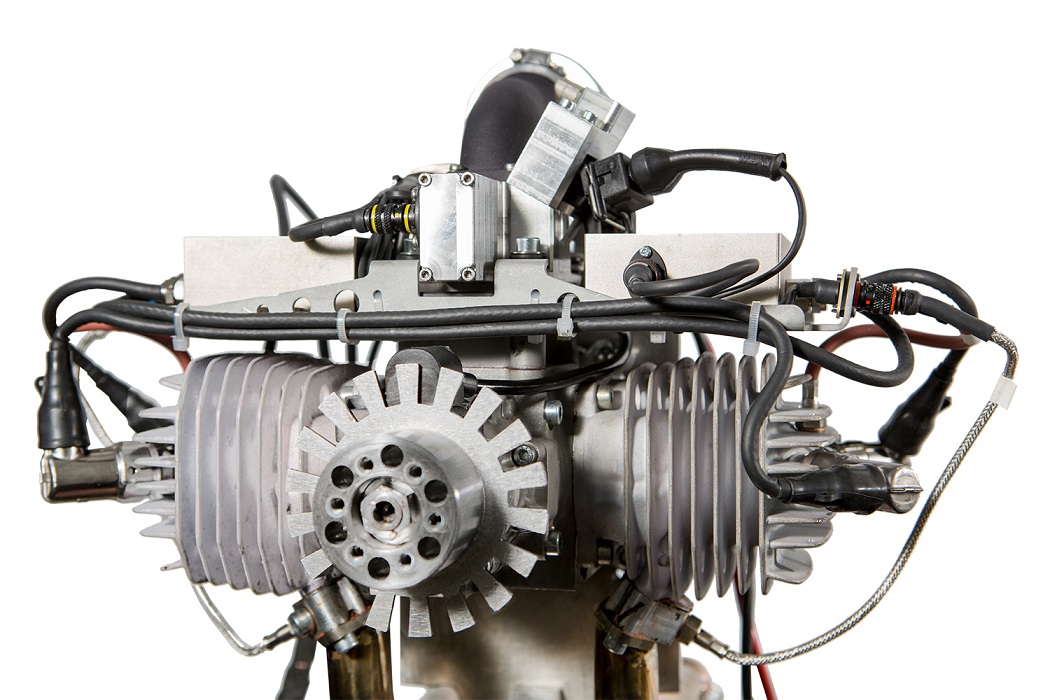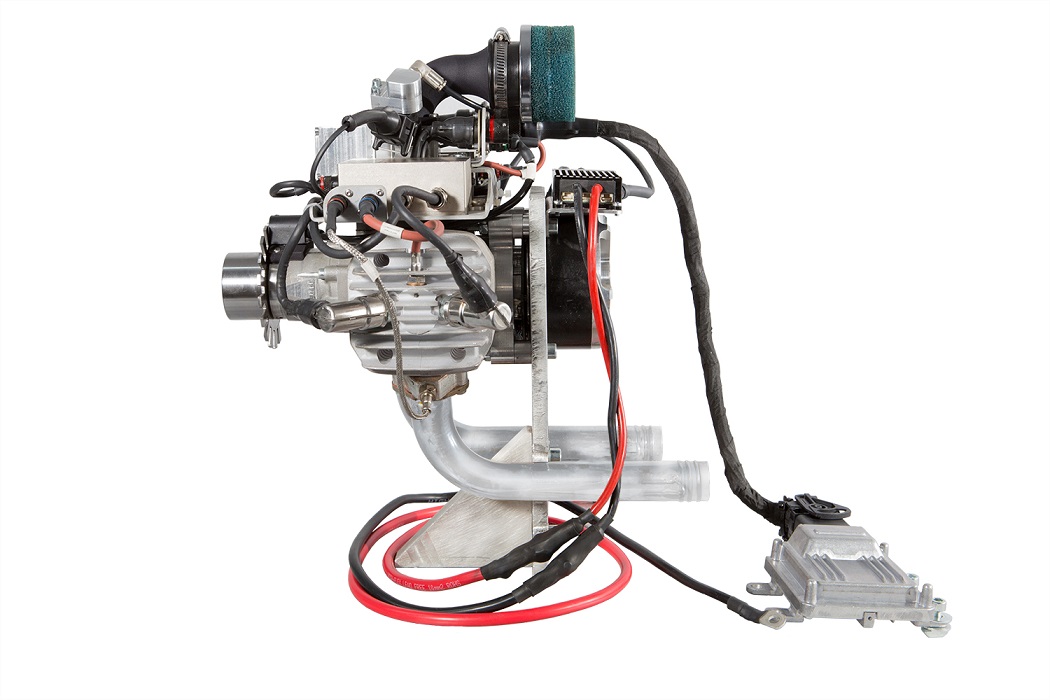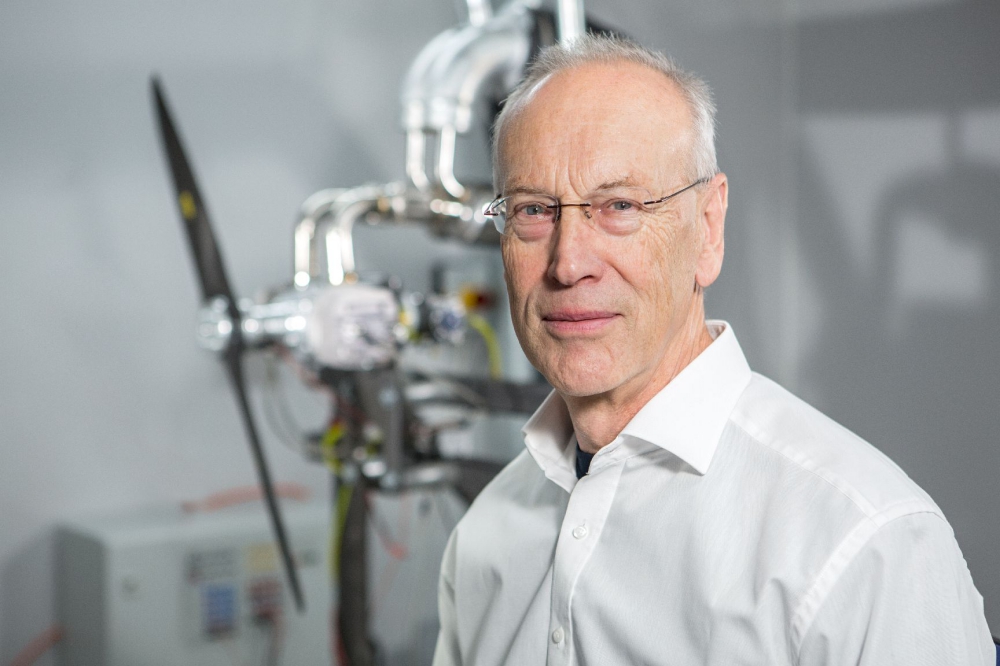Sky Power GmbH introduced itself to the specialist public for the first time at this year’s AUVSI Xponential in Denver. Since then a series of new engines has been developed for a wide variety of Unmanned Aerial System applications (UAS). Now, with the newly developed 110 ccm engine, SP-110 FI TS, a completely new engine concept is presented, which focuses squarely on performance- and fuel optimization, ease of maintenance and space saving.
“Sky Power has dedicated itself to the development of high-performance engines based on 2-stroke and Wankel engine technology, that are used in demanding UAS applications. For this reason, we have optimized the existing SP-110 FI TS yet again, in order to make it even more efficient for the future tasks of our customers”, declared Karl Schudt, CEO of Sky Power GmbH.
This not only includes the engine performance, but also the engine design.
The newly developed SP-110 FI TS has a system carrier, which is mounted above the two cylinders. Besides the two electronic systems of the HKZ215 ignition, the engine injection system is also mounted on this system carrier. Both the injection system as well as the system carrier are screwed firmly together with the engine. All data lines of the sensors, which gather engine data at a variety of measuring points and transmit these to the ECU030, are bundled on the system carrier.
“The system carrier is fixed to the engine with screws. If faults occur, this can be completely dismantled together with the injection system. To do this, the screws and all plug connections are detached. A new system carrier with all modules and data cables can then be mounted and screwed together. As a result the engine is operational again after just a few minutes, since the ignition system is passive and is controlled by the ECU”, explained Schudt.
Plug connectors from racing were chosen for the data cables. Plug connectors according to MIL specifications are also possible. “At the request of the customer, the system carrier can also be left out. In that case, all systems are positioned in the UAS body, whereby longer cables are required and the integration of the engine is more complex”, stated Schudt.
Engine, system carrier and all electronic modules thus form a compact unit, that can be installed in the UAS, thereby saving space. In addition, the engine performances and the smooth running were further optimized. The latter is important, especially for land survey or reconnaissance flights. The improved engine performances are dependent on the muffler and propellers and were determined on a dynamometer test rig. Particular attention was thereby given to a reduced fuel consumption, in order to make the operation of the UAS even more efficient. Due to the newly developed ECU030 and the new HKZ215 ignition, the development team already knew in advance, that fuel savings of 20% and more are possible. “This trend proved to be true. We were able to save a further 5%, dependent on the speed, as the dynamometer tests verified. Consequently, we will meet the current and future requirements of our customers, who are looking for efficient and fuel-saving drive solutions, in order to increase their range, the flying time or the payload”, stated Schudt happily.
The SP-110 FI TS is available as petrol engine. A Heavy Fuel (HF) variant will follow in the middle of 2019.
“We are working on a new, lighter HF system, that besides the reduction in weight, also has a reduced fuel consumption of the HF engine as objective”, declared Schudt looking ahead.
*****
Sky Power GmbH is a leading manufacturer of 2-stroke combustion- and Wankel engines for UAS (Unmanned Aerial Systems) and hybrid applications. Besides in-house development and manufacture, Sky Power produces all engines in Germany. Customer adaptations, new developments and the improved performance of the combustion engines are a further company objective.
Source: Press Release



